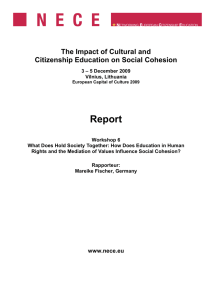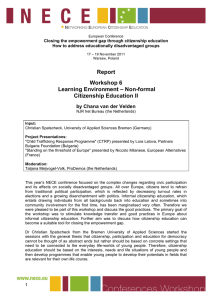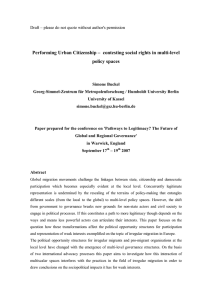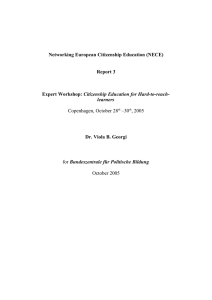Citizenship Education Facing Nationalism and Populism in Europe
advertisement
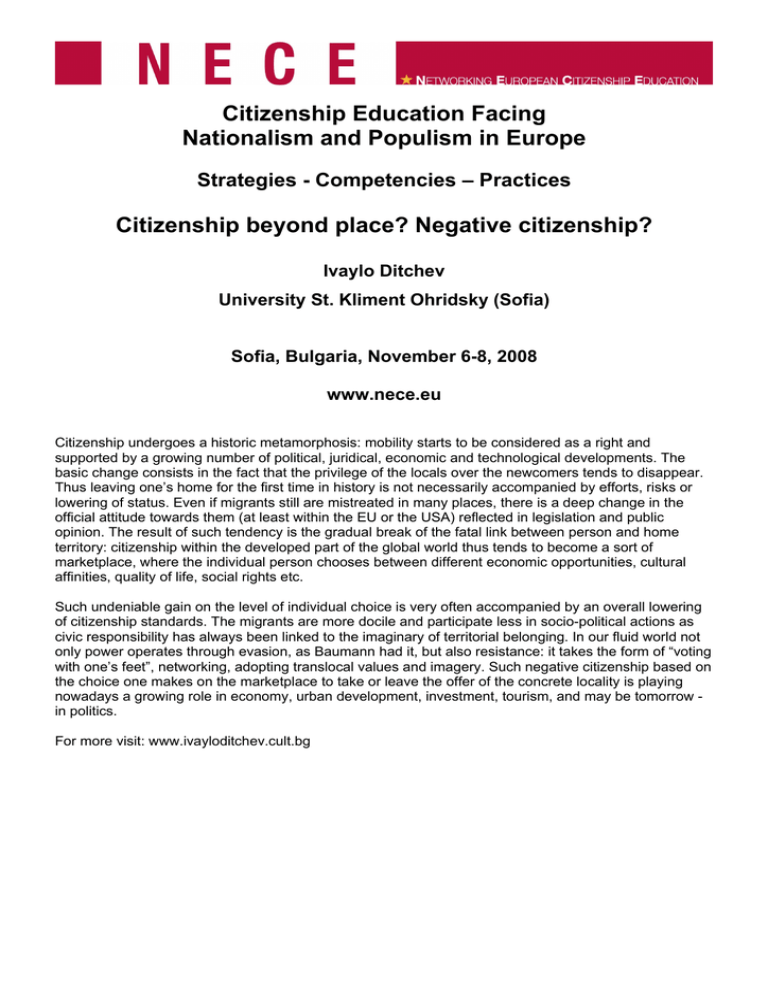
Citizenship Education Facing Nationalism and Populism in Europe Strategies - Competencies – Practices Citizenship beyond place? Negative citizenship? Ivaylo Ditchev University St. Kliment Ohridsky (Sofia) Sofia, Bulgaria, November 6-8, 2008 www.nece.eu Citizenship undergoes a historic metamorphosis: mobility starts to be considered as a right and supported by a growing number of political, juridical, economic and technological developments. The basic change consists in the fact that the privilege of the locals over the newcomers tends to disappear. Thus leaving one’s home for the first time in history is not necessarily accompanied by efforts, risks or lowering of status. Even if migrants still are mistreated in many places, there is a deep change in the official attitude towards them (at least within the EU or the USA) reflected in legislation and public opinion. The result of such tendency is the gradual break of the fatal link between person and home territory: citizenship within the developed part of the global world thus tends to become a sort of marketplace, where the individual person chooses between different economic opportunities, cultural affinities, quality of life, social rights etc. Such undeniable gain on the level of individual choice is very often accompanied by an overall lowering of citizenship standards. The migrants are more docile and participate less in socio-political actions as civic responsibility has always been linked to the imaginary of territorial belonging. In our fluid world not only power operates through evasion, as Baumann had it, but also resistance: it takes the form of “voting with one’s feet”, networking, adopting translocal values and imagery. Such negative citizenship based on the choice one makes on the marketplace to take or leave the offer of the concrete locality is playing nowadays a growing role in economy, urban development, investment, tourism, and may be tomorrow in politics. For more visit: www.ivayloditchev.cult.bg





